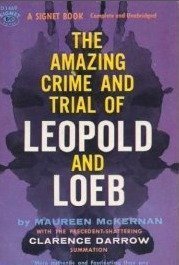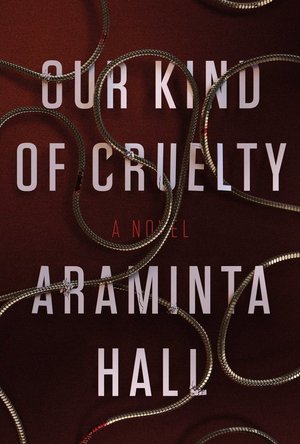
Environmental Transformations: A Geography of the Anthropocene
Book
From the depths of the oceans to the highest reaches of the atmosphere, the human impact on the...
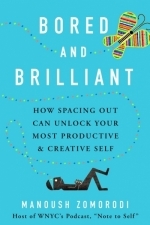
Bored and Brilliant: How Spacing Out Can Unlock Your Most Productive and Creative Self
Book
"Bored and Brilliant shows the fascinating side of boredom. Manoush Zomorodi investigates...
Mind
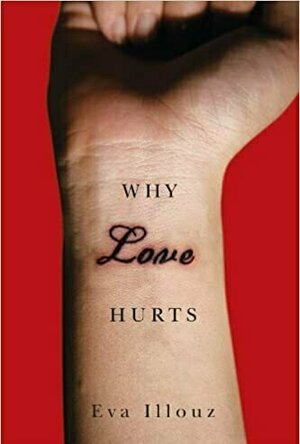
Why Love Hurts
Book
Few of us have been spared the agonies of intimate relationships. They come in many shapes: loving a...

FX Trader Magazine
Finance and Magazines & Newspapers
App
FX Trader Magazine is a leading quarterly publication for currency traders. It has been honored...
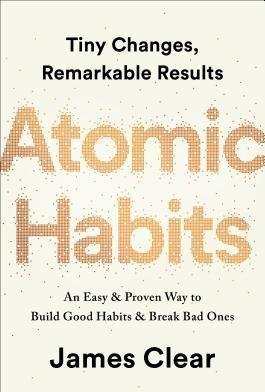
Atomic Habits: An Easy & Proven Way to Build Good Habits & Break Bad Ones
Book
Tiny Changes, Remarkable Results No matter your goals, Atomic Habits offers a proven framework...
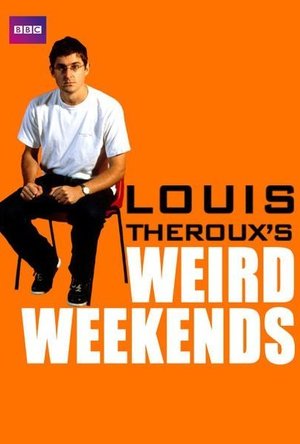
Louis Theroux’s Weird Weekends - Series 3
TV Show
Documentaries by writer and presenter Louis Theroux which delve into the weirder fringes of American...
Hadley (567 KP) rated The Amazing Crime and Trial of Leopold and Loeb in Books
Apr 13, 2019
If you mentioned the names Leopold and Loeb today, many people wouldn't know who you were talking about, but if you had mentioned them just thirty years ago, many people would recall the 'murder of the century.'
If you are a fan of the True Crime genre, you'll come across the case of two wealthy Chicago boys who thought they could get away with murder. (The trial is probably the most talked about trial to-date because this is the first time that psychology was brought before a court room.)
For a good part of the late 1920's, Leopold and Loeb were household names for good reason: they came from millionaire families, they were college graduates before they were 18-years-old, and their trial was the first time in history that the world saw psychology put in front of a judge. The trial was even more unforgettable due to a closing speech given by famous defense attorney, Clarence Darrow, which is reprinted in its entirety,spanning a hefty 93 pages.
Nathan Leopold, Jr. and Richard Loeb were two people who should have never met, according to the courtroom. The two met at about the age of fifteen, soon after they began to embark on criminal acts together, ranging from theft to arson. It's stated in 'the Amazing Crime and Trial of Leopold and Loeb' that Loeb had created a fantasy world where he was a crime ringleader that was too smart for the police to catch. Readers get to judge for themselves whether or not they believe Loeb was the cause of their crimes, or if Leopold was the one really in charge.
After robbing Loeb's fraternity house together, Leopold and Loeb came up with a plan to kidnap a wealthy child that they could then ransom. "They began to devise elaborate plans for this kidnapping, and soon the planning became the all-important thing. They gave up the idea of kidnapping this particular person [a young man named William], and settled on the idea of kidnapping anyone who would fit in their kidnapping plans." Throughout the book, we find out that the boys were pretty desperate for a kidnapping victim, that they even thought about kidnapping one of their close friends:
"The plan of kidnaping Dick Rubel was given up because Dick Rubel's father was so tight we might not get any money from him."
Leopold and Loeb discussed everything from how they would receive the ransom, what weapons they would use, how they would get the victim inside a rented vehicle, and what they would do with the body afterwards. "In March, 1924, the patient [Loeb] conceived the idea of securing the money by having it thrown off a moving train. This idea was discussed in great detail, and gradually developed into a carefully systematized plan. As time wore on the plan became greatly modified from the original one. They discussed at considerable length the choice of a suitable subject for kidnapping. The patient's companion [Leopold] suggested that they kidnap a young girl instead of a boy, but the patient [Loeb] objected to this. His companion [Leopold] also suggested that they kidnap the patient's [Loeb] younger brother, but the patient apparently did not seriously consider doing this. They then considered half a dozen boys, any one of whom would do, for the following reasons: that they were physically small enough to be easily handled and their parents were extremely wealthy and would have no difficulty or disinclination to pay ransom money."
During the trial, Leopold and Loeb's psychological evaluations became the forefront of their guilty plea, stating that they were not responsible for their actions due to their upbringing and environment. "I submit the facts do not rest on the evidence of these boys alone. It is proven by the writings; it is proven by every act. It is proven by their companions, and there can by no question about it." Clarence Darrow explains in his famous closing statement. "We brought into this courtroom a number of their boy friends, whom they had known day by day, who had associated with them in the club house, were their constant companions, and they tell the same stories. They tell the story that neither of these two boys was responsible for his conduct."
'The Amazing Crime and Trial of Leopold and Loeb' contains the portions of the psychiatric evaluations that were submitted in court,but the testimony of character witnesses is omitted. For a factual telling of a real life trial, this book is okay. If the reader pays attention, they may notice that some of the book contradicts itself, such as one page states that the car robe used to wrap up Franks' body was found buried near Lake Michigan,but then pages later, the book states it had been burned at Loeb's home.
The psychiatric reports are very repetitive,just using different words to describe the same things. Yet, these reports are the backbone of the trial and well worth a read. The evaluations and Darrow's extensive speech were what saved Leopold and Loeb from a death sentence.
There are very few books written about the 'murder of the century,' and even less about the 'lawyer of the century.' Leopold and Loeb, as well as Darrow, have faded into the obscurity of the True Crime genre, but because the boys' mental state was brought into question, we now accept forensic science/psychology in the court room today. I feel that only people who are truly interested in True Crime, or even have a fascination for the court room are the only ones who will enjoy 'The Amazing Crime and Trial of Leopold and Loeb.'
Acanthea Grimscythe (300 KP) rated Nail's Crossing (Bill Maytubby & Hannah Bond Mystery #1) in Books
May 16, 2018
Nail’s Crossing is a fast-paced police procedural from debut author Kris Lackey. Set in Southeastern Oklahoma, the novel dips into Arkansas (my stomping grounds) and Louisiana. Some scenes take place in Oklahoma City, in neighborhoods I know well and the locales depicted in this book are precisely why when I received an email regarding it, I absolutely had to read it.
This book is in the first in a series centered around Bill Maytubby, a reservation police officer, and Hannah Bond, a sturdy, no-bullshit female officers from the county. In these two and the many side characters, Lackey proves adept at making his cast realistic and relateable – which is something I find wanting in other books far too often.
The plot of Nail’s Crossing deals with the aftermath of a young woman’s murder and a varied group of individuals that are responsible for her death. By focusing on the apprehension of the criminals, rather than the psychology behind why they killed the woman make this title a refreshing read, especially after all the books I’ve read lately that try and compare themselves to Gone Girl.
I’ve been in a bit of a slump recently, so the fact I devoured Lackey’s book in only a couple sittings speaks volumes to his ability to maintain a constant flow of action. Unlike many books I’ve read where the author refers to stereotypes to depict certain demographics, Lackey’s portrayal of poverty-stricken southerners is accurate. Considering I live in one of Arkansas’s poorest counties, this meant a lot to me. Lackey has given those without voices one within the pages of his novel that, if you’re looking for it, remind readers that we’re our own culture as well (and not by clinging to Confederate rhetoric like the ones of today seem to).
I look forward to more books in this series, that’s for sure. I’d like to thank Blackstone Audiobooks for providing me with a free copy of this book at no charge in exchange for an honest and unbiased review.
Sassy Brit (97 KP) rated Our Kind of Cruelty: A Novel in Books
Jun 5, 2019
The book begins like any other but it wasn’t long before I felt sorry for Mike, even though I knew he was a nasty piece of work. Why? I found the reason I sympathised with him was in the details. The way the author, Araminta Hall, portrayed Mike’s years as he talked about life as a kid; the things he refused to do, or accept, because his thinking was always logical and he didn’t understand why no one else could see things the way he did. Why say sorry when you don’t mean it? Why say you could kill someone and not do it?
As an adult Mike’s learnt to fit in with the world and act as society expects. To a certain degree. But it doesn’t mean he has to like it, or find it easy to do. He’s also one for keeping himself in check with routines of which he thrives on. Clearly, when you get to the end you’ll realise Mike’s attitude plays a massive part of the final twist.
I really enjoyed this book and its flawed characters. Although it’s not particularly fast-paced to start with, the journey fascinated me. Our Kind of Cruelty is about obsessive love, unhealthy relationships, and the psychology of the human mind. Details. It’s all in the details.
#WhatsYourVerdict? My verdict would give the whole twist away… This would translate well to film.
Kristin (149 KP) rated Weirdo. Mosher. Freak: (If Only They'd Stopped at Name Calling) in Books
Dec 7, 2018
Most everybody, at some point in their lives, has been picked on, bullied, pushed around, whether literally or just emotionally. What happened to Sophie Lancaster and Rob Maltby in August 2007 shows the result of that being taken to the unfortunate extreme.
To say that I enjoyed this book would seem a little inappropriate, considering its subject matter. However, I found it extremely enlightening, as I do not recall ever hearing about this case when it occurred 5 years ago. Reading about how news of it and the resulting foundation spread worldwide made me pause and try to remember back to that time, and I think I remember seeing the "S.O.P.H.I.E." logo before, here in Virginia, USA. That just goes to show how much this meant, and still means, to so many people around the world.
I found this book to be very tactful in its approach to the case, from start to finish, as well as the coverage of the fundraising events for the Sophie Lancaster Foundation and Sylvia Lancaster's work to change the laws regarding the definition of hate crimes. Having just received a Master's Degree in Forensic Psychology, and as someone who has worked with people who have committed Domestic Violence, the sections describing the defendants' actions during the assault, interviews, court appearances (as well as their parents') was extremely unsettling, but very helpful in understanding just how they could be so abusive.
I would recommend this book to anyone who works with youths, especially those considered "troubled," as they could see and share what could happen if they continue down the road they're on. However, those who might benefit most are those who can relate to the title, having been called a "weirdo" or a "freak" by their peers. They need to know that there are people all over the world just like them, and that there is no reason to take the abuse, whether verbal or physical. As Sylvia Lancaster was quoted in the book, "prejudice and intolerance is the new racism," and it can't get any better until those who promote it are held accountable.
"Hate is easy--love takes courage."
